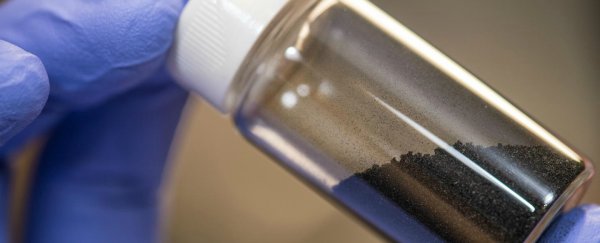The asphalt that forms our roads can be modified to store carbon and help reduce the amount of CO2 entering the atmosphere, new research as found.
A team from Rice University in the US has used asphalt, or bitumen, to make a cheap porous material that can store an impressive 114 percent of its weight in carbon dioxide.
Known as asphalt-porous carbon (A-PC), the new material stores the carbon dioxide like a sponge at room temperature, but lets other gasses, such as methane flow through freely.
This means it's an ideal material to use as a filter in natural gas wellheads, which currently release a lot of carbon dioxide into the atmosphere in addition to the desired methane. The captured CO2 could later be extracted for other practical purposes, and the study shows that the material can store and then release CO2 over and over again without degrading.
"This provides an ultra-inexpensive route to a high-value material for the capture of carbon dioxide from natural gas streams," said chemist James Tour, who led the research, in a press release. "Not only did we increase its capacity, we lowered the price substantially."
The team made several variation of the material, which is made by mixing asphalt with potassium hydroxide at a high temperature, but the cheapest cost was just 30 cents per pound (~0.4 kg).
Their research has been published in the journal Applied Materials and Interfaces.
Tour notes that this makes the material better than any other that's currently in use. And they're hoping to tweak it further to make it more efficient.
Source: EurekAlert
